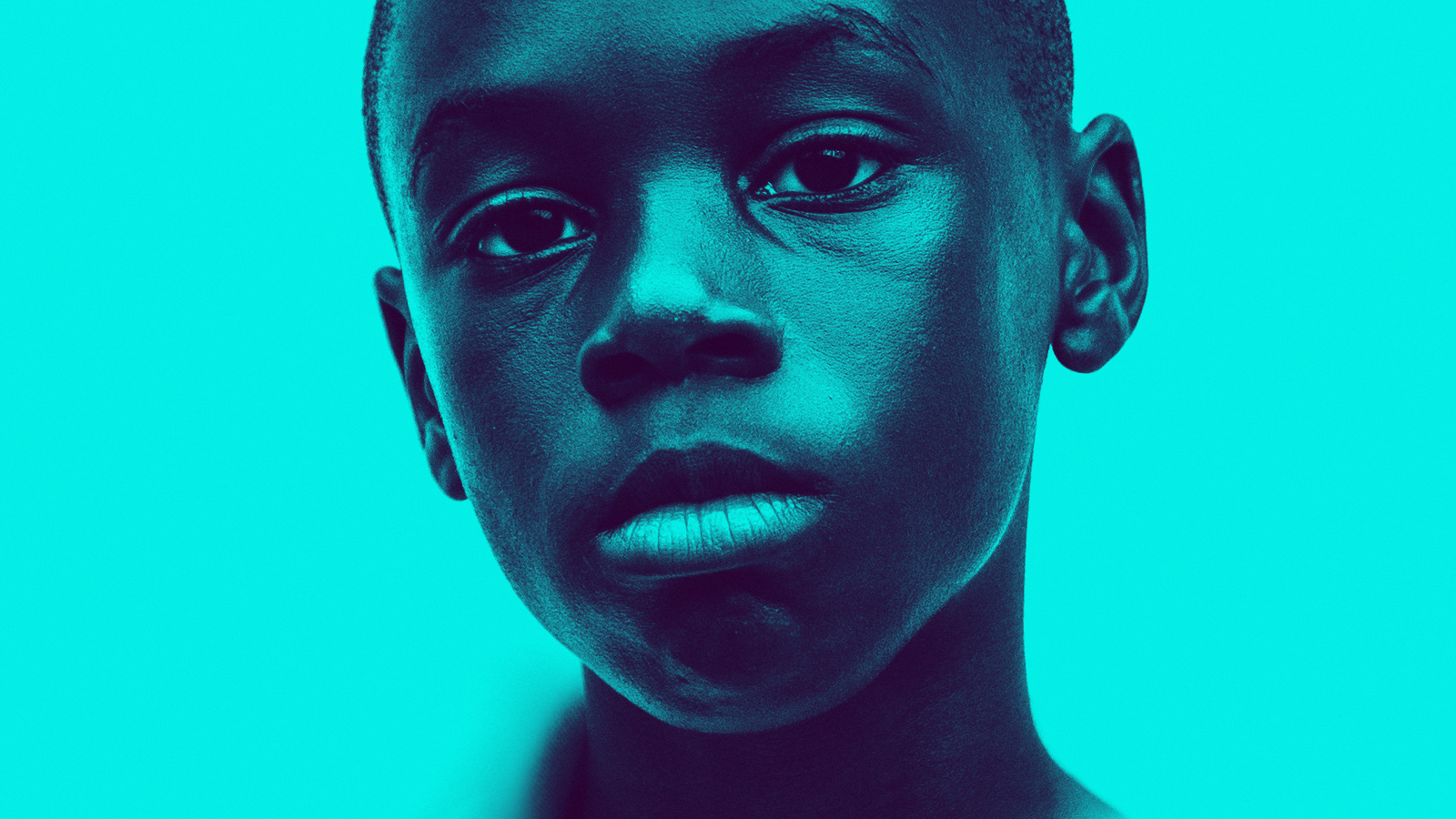They say hope comes in many forms. One of them is the arrival of Moonlight, a cinematic masterpiece, in the year of the Orlando shootings and the Trump presidency. It is a story rarely told but direly needed which focuses on LGBT people of color, and shatters black stereotypes. The ambitious sophomore effort of Miami-based director Barry Jenkins succeeds in crafting a vision of a fragmented individual in a fragmented narrative which surpasses the sum of its parts and asks universal questions for you and me: Who are you? What is masculinity? How does the past shape you?
Based on the loosely autobiographical play In Moonlight Black Boys Look Blue by Tarell Alvin McCraney, Barry Jenkins narrates a black man’s coming-of-age across three short chapters, over three distinct time periods. Growing up in a tough environment in Liberty City, Miami, Chiron has to face his own sexuality, poverty, inner city crime and find out how he can stay true to himself in a hostile world. Fittingly, in Greek mythology, Chiron is the gentlest of centaurs, a great healer who couldn’t help himself.
Tender moments like these are harshly contrasted by the reality of Chiron’s broken home and a neglectful mother (Naomie Harris) who looks for love in all the wrong places. He feels alienated from everyone but can’t quite put his finger on why that is. “Am I a faggot?” he asks Juan in a heartbreaking scene, and adds: “does my mother take drugs?” Several years pass and the second vignette shows teenage Chiron (Ashton Sanders), who has learned how to deny and suppress his sexuality, facing more adversity than ever. Trapped between a rock and a hard place, he has a sexual encounter with childhood friend Kevin (Jharrel Jerome) on South Beach. But then something cruel happens and he has to come to terms with the repercussions.
By the third act the little boy has morphed into the 25-year-old ‘Black’ (now played by ex-athlete Trevante Rhodes), living in Atlanta, a hardened man with a set of golden grills and a Cadillac reminiscent of the one Juan had. Everything he was he has now carefully stashed deep inside his six-pack and menacing façade. He’s “trapping” now. One night he gets a phone call from back home. It’s Kevin (André Holland), who hasn’t seen him in a decade. “Who is you Chiron?” he asks playfully, as the old friends reconcile.
To see this as just a black LGBT movie would do it a great disservice. Yes it’s a black gay story but just as sexuality is never an exhaustive characteristic of a person, it doesn’t stop here. Moonlight goes deeper and examines masculinity and toughness, real and found family, drug addiction and criminality. These realities coexist and don’t extinguish each other while the comparably concise storytelling stays exemplary enough to evoke a rich inner world where truths shine from between the lines and categories like ‘betrayal,’ ‘downfall,’ or ‘redemption’ are ridiculed. This is life.
In the moments in which Moonlight feels acutely sad and almost unbearable, it finds itself balanced by the hypnotic camera and Nicholas Brittel’s urgent soundtrack. Jenkins, whose first work Medicine for Melancholy was a desaturated, cool affair, steeps his second picture in visual lushness. Working with cinematographer James Laxton and colorist Alex Bickel, he creates a distinct vision of Miami as a ‘beautiful nightmare’ (Tarell). Omnipresent sunrays reflect off the characters’ faces, sculpting them, and prime colors such as greens and blues evoke the beauty of a Floridian summer. In this universe, Boris Gardiner’s “Every Nigger is a Star” blares confidently right next to Goodie Mob’s Southern evergreen “Cell Therapy” – which only makes sense in a movie that casts soul-android Janelle Monaé as a distant Atlantan relative.





Ja es IST einfach DAS, was du sehr gut kannst - DAS SCHREIBEN. Du findest deinen Weg bestimmt,es ist aber sehr sehr schwer….
Ich danke Dir, daß es dich gibt